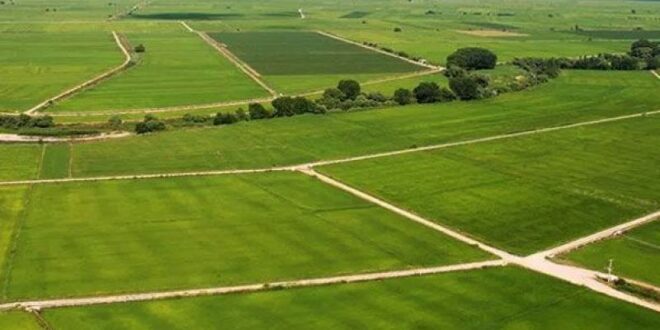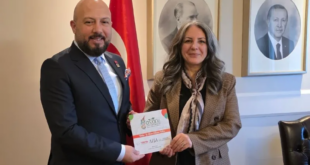Press release…
The EU’s Strategy for Generational Renewal in Agriculture needs to be based on a robust analysis and a clear recognition that farm viability is essential to keep younger generations engaged in farming. The post-2027 Common Agricultural Policy (CAP) must keep its market orientation and support the sector in addressing the major challenges it faces – from climate change to market shocks.

The European Landowners’ Organization (ELO) welcomes the publication of the European
Commission’s Strategy for Generational Renewal in Agriculture, recognising the importance of
ensuring continuity in agriculture to safeguard Europe’s food security and the vitality of rural
areas.
The agricultural sector is under increasing pressure due to climate change and geopolitical developments that exacerbate its economic and structural vulnerabilities. Generational challenges largely stem from these fragilities, which cannot be solved by framing the issue as one of “old versus young”. Instead, the focus must be on addressing the underlying factors that
affect the viability of farm businesses across the EU.
While successive CAP reforms have sought to reverse negative trends, the solution does not lie
in merely doubling down on existing mechanisms. Instead, it requires acknowledging the
structural and economic weaknesses of the sector and developing a stronger CAP that
maintains its market orientation, supports necessary structural adjustments, and is
complemented by a broader strategy recognising that many relevant issues lie beyond its
scope. For instance, investment in rural infrastructure and services — essential for retaining
younger generations in rural areas — falls largely outside the CAP.

Generational renewal requires that new entrants achieve a level of economic viability
comparable to that of other sectors. However, the current post-2027 CAP proposals appear to
shift the CAP towards a primarily social orientation, potentially undermining competitiveness
and the market-driven principles that have characterised the CAP for over two decades.
Treating the CAP as a social policy — rather than a policy whose social dimension is inherently
linked to its economic and environmental dimensions — risks diminishing its effectiveness.
Many of the social challenges facing agriculture are, in fact, driven by broader external factors.
It is true that “young farms are entrepreneurial and adaptive, often at the forefront of adopting
innovative technologies, sustainable practices, and diversified business models.” However, much can
be gained from the experience of older generations. The ELO welcomes the Commission’s
recognition of the crucial role of farm succession in generational renewal. Nonetheless, the
strategy falls short of providing concrete and actionable measures to support farm succession,
particularly with regard to intra-family transfers.
The strategy is clear when presenting the data on the generational problems of the agricultural
sector, but it is much less clear on its causes. The ELO therefore welcomes the planned analysis
of land-related barriers and calls for further examination of additional obstacles before setting
targets or imposing ring-fenced percentages. Without a deeper understanding, such measures
risk encouraging new entrants into unviable farming situations.
ELO agrees that farm transfer is at the heart of generational renewal. The ELO welcomes the
setting up of an EU Land Observatory to improve transparency and understanding of land use
rights and transactions, price trends and market behaviour, transfers of rights and land use
changes. We hope this leads to less politicised and polarised views over concepts such as “land
grabbing” and can support Member States with their cadasters, particularly dealing with cases
of restitution, public ownership and where the owner is “not identified”. This could also help
with issues of land abandonment which are prevalent in certain parts of the union, as they
showcase the variability of issues and circumstances that make the generational renewal more
difficult to solve.
These national and regional variations underline the importance of developing national
strategies that not only identify entry barriers and trends but also analyse retention “staying”
rates. However, it is essential to fully understand the diversity of situations across Member
States before setting targets or progress indicators.
In conclusion, the ELO welcomes the overarching objective of the Strategy and urges
co-legislators to focus on farm viability and the structural challenges underpinning
generational issues. The strategy must acknowledge the diversity of rural enterprises and
business structures across Europe, which continuously adapt to changing conditions and
market pressures. Nevertheless, the fundamental principles underpinning family farms and
rural enterprises remain the same: secure property rights and intergenerational management.
 THE GLOBAL WINDOW OF TURKISH FOOD AND AGRICULTURE The Global Window of Turkish Food and Agriculture Sector
THE GLOBAL WINDOW OF TURKISH FOOD AND AGRICULTURE The Global Window of Turkish Food and Agriculture Sector








